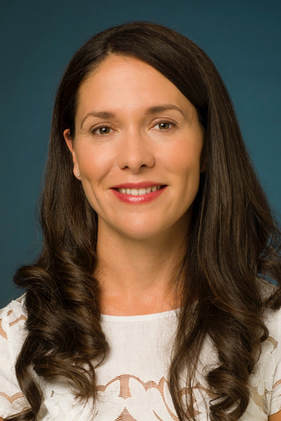 Erin MacGregor is a Professional Home Economist and Dietitian who combines her credentials to chase the work she loves. As a dietitian, she works in a clinical setting at an acute care teaching hospital. She combines her RD and PHEc credentials as the co-owner of How to Eat, a food and nutrition communications business that aims to help families cook more at home and raise a generation of happy, healthy eaters. Through her work in media as a blogger and as an ambassador for the Canola Eat Well for Life team, Erin has become an advocate for honest and transparent communication about our food system. She hopes to take the fear out of food and inspire Canadians to have a healthful and happy relationship with it. Erin has been an OHEA member and 2-time volunteer on the Board of Directors, since 2007. In 2017 she joined the OHEA mentorship program to help foster a new generation of PHEcs. Erin lives and eats in Toronto with her husband, 2 year old daughter and 9 year old fur baby. When, and why did you choose to get involved with the OHEA mentorship program?
Along with my work in acute care as a clinical dietitian, I sit on our hospital's Internship Advisory Committee, precept 2 dietetic interns every year, lead intern workshops and do regular inter-professional teaching. I love teaching and mentoring and remember what an impact it had on me early in my career. I say ‘yes’ whenever I feasibly can. What unique skills have you been able to bring to the table and pass along to your mentee? I work and have worked in a variety of settings in the public and private sector and with my recent foray into entrepeneurship with my nutrition communication business How to Eat I can speak from that perspective too. What has been the most rewarding part of being a mentor so far? Recognizing that mentorship can have a very practical impact on a student’s career trajectory is really fulfilling. Even more so though, learning is a two way street and I learn just as much from students and mentees as they learn from me. Mentoring forces me to stay up to date with current trends, research and news. I absolutely love when I get questions I don’t know the answer to! Overall how has your experience been and will you continue on with the program? I’ve had a phenomenal mentee in Joy Huynh who blows me away with her commitment to pursuing a career in nutrition. Based on my experience with her, I would enthusiastically mentor more students. Any advice for people interested in mentoring but may need the extra push? You know so much more than you think you do and your experience is so much more valuable that you think it might be. Being a mentor doesn’t mean you’re an expert, it means you’ve had experiences that will help students make more informed decisions about their education or career paths. Despite a very busy work and home life, the time commitment has been reasonable and is flexible. Joy and I worked out a plan specific for us right from the get-go. I set up a short questionnaire to help me understand what Joy wanted out of the mentorship and we went from there. We have committed to touching base once per month for an hour over the phone with a pre-set agenda. We’ve talked about possible career paths, worked on her resume, and set-up small goals and projects for her to work on in the time in between. If anyone is in need of a push to say ‘yes’ to mentoring, I’m happy to mentor would-be mentors too!
0 Comments
Your comment will be posted after it is approved.
Leave a Reply. |
The Ontario Home Economics Association, a self-regulating body of professional Home Economists, promotes high professional standards among its members so that they may assist families and individuals to achieve and maintain a desirable quality of life. Categories
All
Archives
April 2024
|
|
Subscribe to our mailing list
|
|
Unsubscribe from our mailing list
|
Copyright © 2023 Ontario Home Economics Association (OHEA). All Rights Reserved.


 RSS Feed
RSS Feed